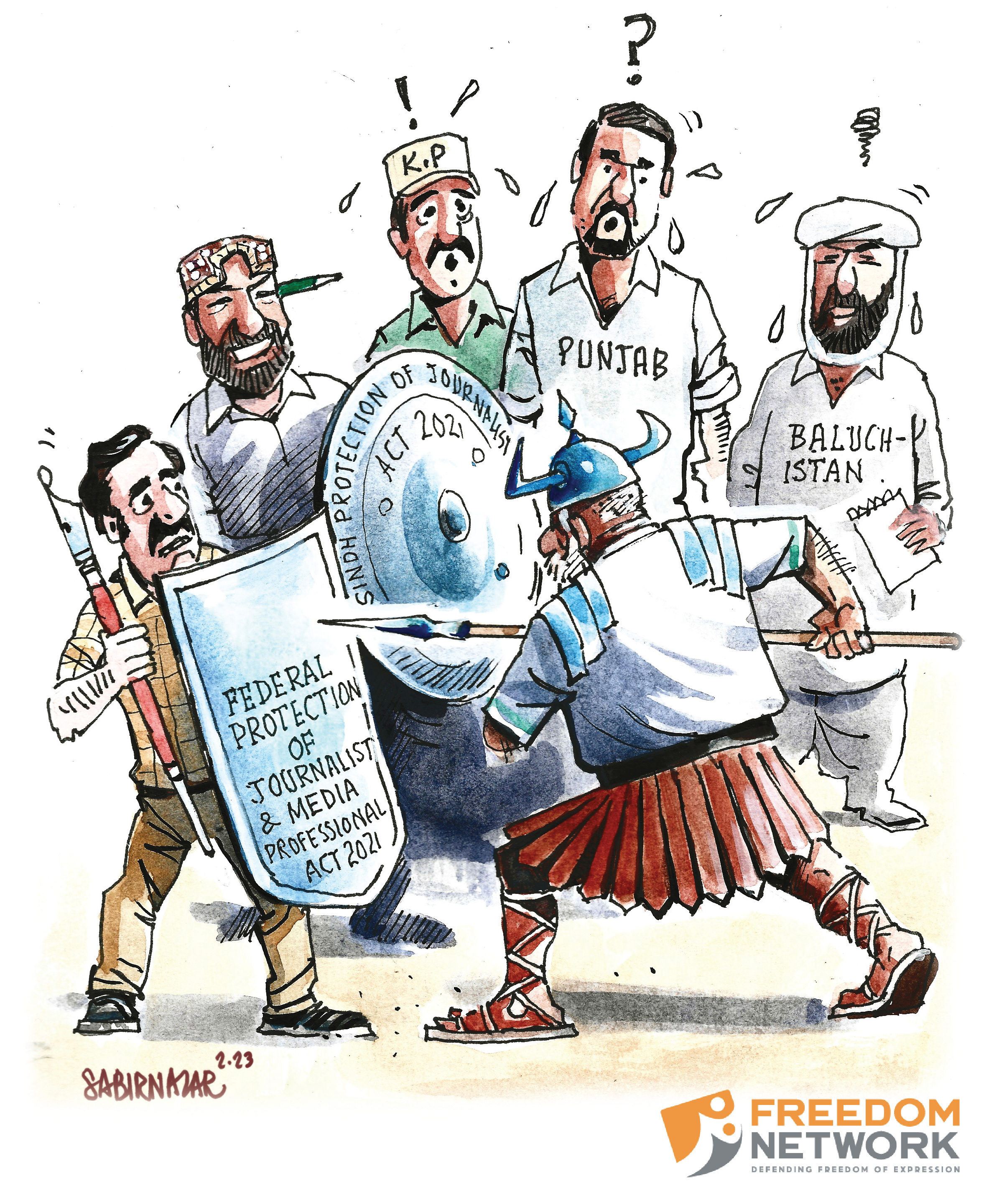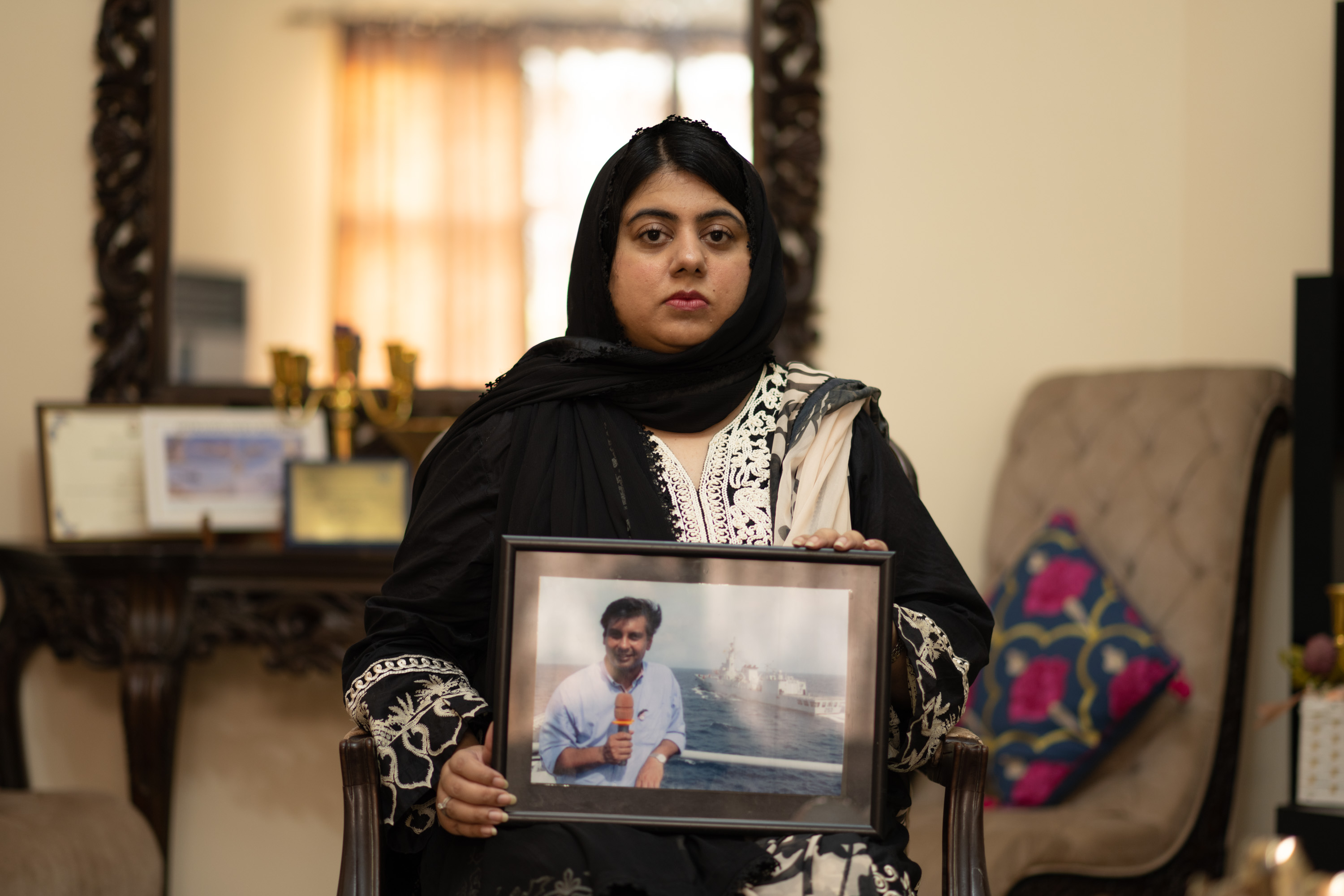M. Ziauddin
In its 72 years of mostly perilous existence, the Pakistani media has seen it all. From special coercive laws to blatant censorship of the worst kind. But what it is undergoing since 2018 has been too brazen: forced self-censorship using tactics unbecoming of a responsible state.
Those who refuse to fall in line suffer from loss of readership and/or viewership at the hands of the known ‘unknowns.’ Those who in the opinion of these known ‘unknowns’ seem uncomfortably close to finding out the truth are treated like unwanted intruders and get intimidated, harassed, at times kidnapped and terrorized and even forcibly silenced for good.
Coercive actions are employed by these known ‘unknowns’ to suppress and manipulate the media. Unjustified cover- ups and suppression of truth regarding crucial questions of public accountability have seriously damaged the process of democracy. Blind official retaliation using ham-handed police methods to curb social media too have only added to the terror ridden atmosphere.
Global experience has taught professional media persons everywhere that the rulers, no matter of what hue, cannot define what truth is. People in general also underestimate the state’s power of disinformation. Indeed, if there is one single well identified producer of fake news it is invariably the state!
Authorities have not been sparing in their efforts to put a stop to journalism that covers areas they consider off-limits. They have put pressure on enterprising investigative journalists and their potential sources using terror tactics, accusing them of taking liberties with the so-called state secrets or of the risks such disclosures are supposed to pose to security of the state.
Reporting on terrorism also means reporting on counterterrorism, and on the way the conduct of the police, the intelligence services and the judiciary as well. And the last thing the authorities want is an exposé of their failings, incompetence or turf wars inside the “state security apparatus”. The reaction to coverage of Pashtun Tahaffuz Movement (PTM), a civil rights movement, by the permanent establishment certainly falls under this category of suppression. PTM is completely off formal media. Under what law? Nobody dare ask!
Too often secrecy is being used not to protect legitimate national security interests but to hide official blunders or even illegal actions from the eyes of the public.
The government has recently proposed a Web TV & Over the Top TV (OTT) Content Services Regulation. The proposal follows the general lines of an earlier one giving federal agencies extensive online censorship powers which the government unveiled in January 2019 and had to withdraw after it was heavily criticized. It is now trying again on the pretext that it needs to regulate content on video platforms such as YouTube and Vimeo, and TV streaming services (also known as OTT) such as Netflix.
Under article 5.2 of the proposed regulation Web TV operators would have to pay up to Rs10 million for a license. Few individuals or even media outlets would be able to afford such a sum to operate an ordinary YouTube channel.
Similarly, under article 5.4, video media outlets could be suspended for violating PEMRA’s existing code of conduct, which contains a great deal of vague wording that allows too much scope for interpretation.
The Pakistan Electronic Media regulatory Authority [PEMRA] has already used this code of conduct to summarily interrupt in July last year, a Geo TV interview with former President Asif Ali Zardari, and a month later three other channels – AbbTakk TV, 24 News and Capital TV – were taken off air for covering a press conference by opposition politician Maryam Nawaz.
In another attempt to tighten controls over the media, Prime Minister Imran Khan has directed all the ministries/divisions and attached departments to comply with the centralized policy of issuing government advertisements to the print and electronic media only through the Press Information Department (PID). This would mean a stricter control over distribution of advertisements by the state in order to micromanage their distribution, favoring ‘friends’ and punishing ‘foes’.
The irony is that Imran Khan had remained a darling of the media over the last 40 years, but after having been installed in the seat of power he seems to have started perceiving the media as his foe. The PM actually gave vent to his true feelings about media in December 2019 at Davos while attending the annual World Economic Forum, saying that he has stopped reading morning newspapers and watching evening chat shows on TV due to ‘extreme negativity targeted at him in the media’.
Media is a public service industry and truth being its main output — while it is constantly tested for quality at the bar of its credibility and integrity — needs all the freedom required to make the commodity available to the general public without fear or favor. And that too in the larger public interest.
Given the peculiar socio-cultural, politico-economic and security conditions of a society in which the media industry functions, and also given the dynamism of each of these conditions that continuously keep conceding space, the industry cannot be forced to abide by a straightjacketed code of ethics. In plain words, what is taboo for media today could be kosher tomorrow.
Considering the evolving dynamism of the platforms, from notice boards to newspapers to broadcast media to social media to smartphones, and with information technology merging with telecom technologies, a static media code of ethics would only cause wasteful, counterproductive and harmful news traffic jams.
The best course, therefore, is to leave it to the media industry to keep evolving a code of ethics of its own, dictated continuously by the constant changes occurring in the code of ethics governing a society within which the media is operating. And since its quality is tested at the bar of its integrity and credibility, media organizations worth their name, in their own self-interest, would try not to digress or transgress from their main public service role of seeking the truth, and nothing but the truth.
The author is a renowned senior journalist who has served as editor for Dawn, The News and Express Tribune newspapers.
DISCLAIMER: All blogs carried by Freedom Network reflect the views of the author(s) only. The blogs are carried in good faith and aimed at supporting pluralistic perspectives on issues related to media and its practitioners. The organization does not have to necessarily agree with views of the authors.
Tightening State Controls Harming Pakistani Media
- February 3, 2020
- 11:13 am
- No Comments
More from the News section
September 18, 2023
No Comments
July 26, 2023
No Comments
June 20, 2023
2 Comments
March 21, 2023
No Comments
August 30, 2022
No Comments

Resize text-+=

